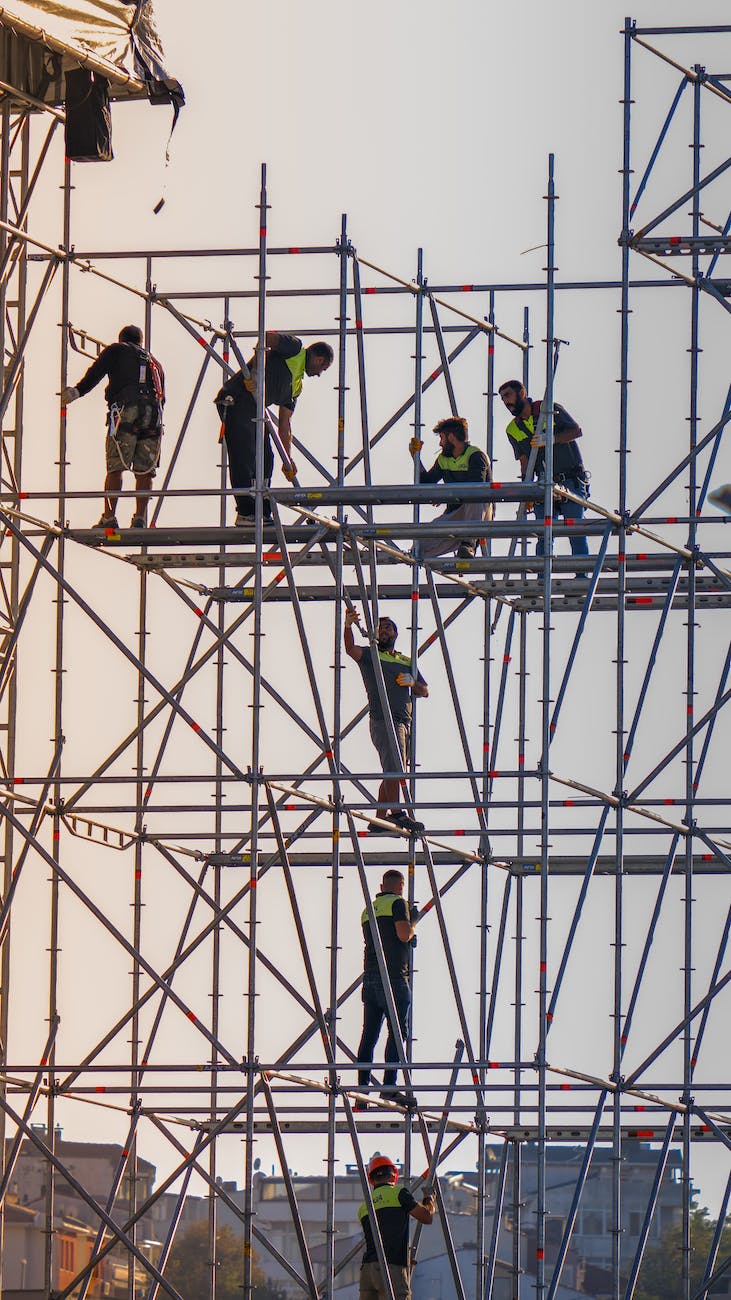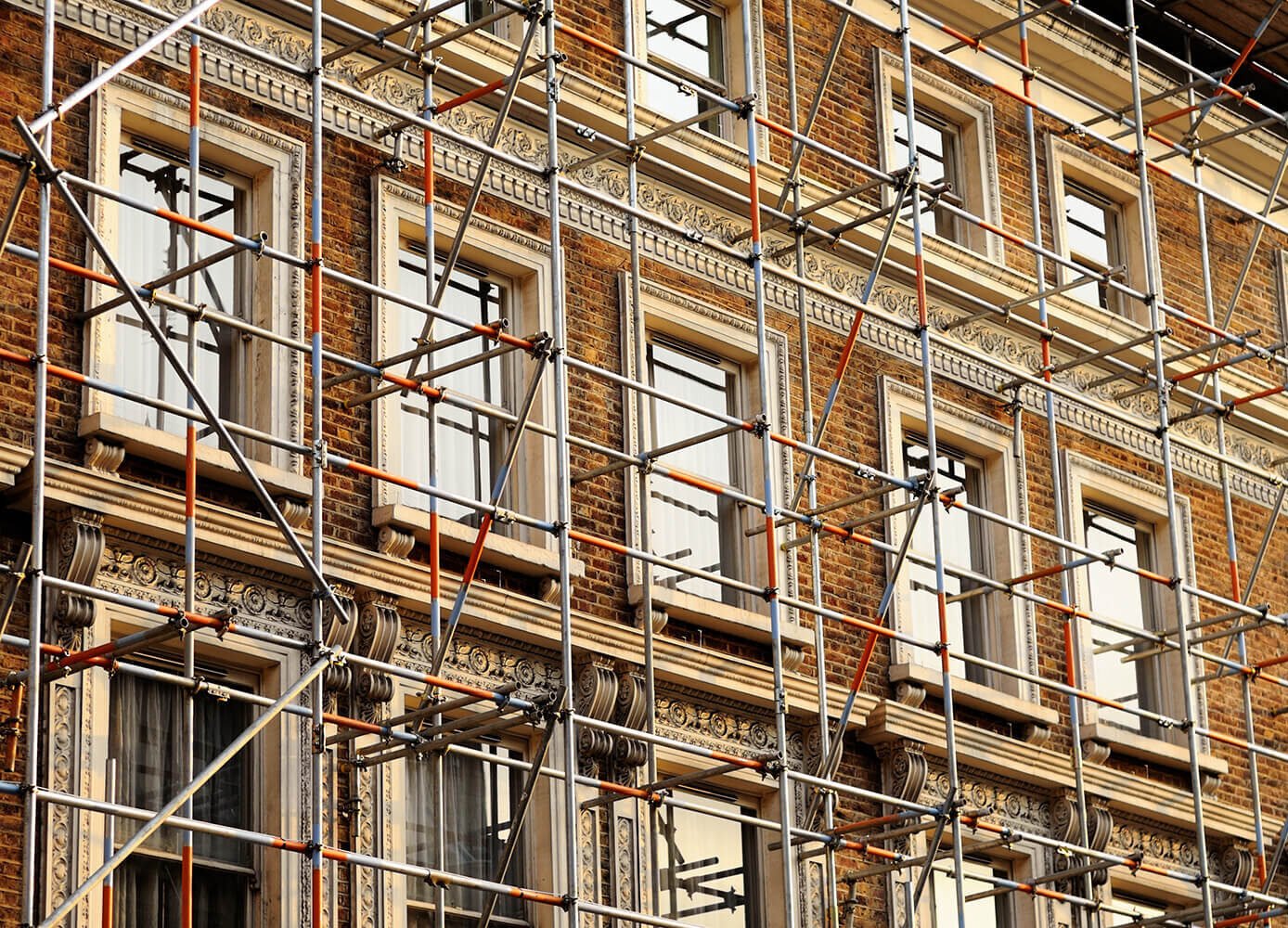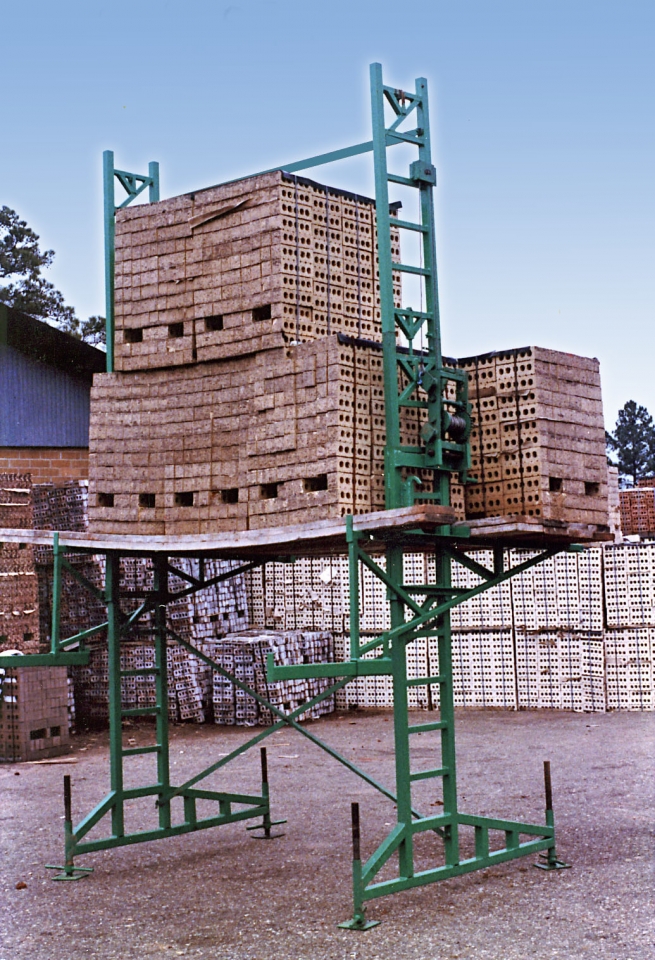Secure and Efficient Scaffolding in Surrey for Any Construction Task
Secure and Efficient Scaffolding in Surrey for Any Construction Task
Blog Article
Discovering the Different Kinds Of Scaffolding Utilized in Building Jobs
The construction market counts heavily on numerous kinds of scaffolding to meet details task needs, each offering unique advantages and applications. Typical framework scaffolding offers a strong structure for basic jobs, while suspended scaffolding is essential for work on skyscraper frameworks.

Traditional Frame Scaffolding
Traditional frame scaffolding is just one of one of the most extensively made use of methods in the building and construction market as a result of its effectiveness and adaptability. This system includes vertical and straight structures that are constructed to develop a secure platform for workers and products. The primary components consist of vertical articles, horizontal journals, and angled dental braces, which with each other supply a strong structure that can support significant loads.
One of the vital benefits of conventional frame scaffolding is its adaptability to different building and construction jobs, ranging from property buildings to large business frameworks. The modular layout enables for easy setting up and disassembly, making it efficient for both short-term and lasting projects. Additionally, the system can be personalized in height and width, suiting different structure styles and site problems.
Safety is extremely important in scaffolding applications, and typical framework systems are outfitted with guardrails and toe boards to avoid falls and make certain worker defense. Normal evaluations and adherence to safety and security regulations are critical in maintaining the stability of the scaffold (Scaffolding). Overall, traditional frame scaffolding continues to be an essential selection in the building industry, supplying a reliable system for labor and boosting overall job performance

Suspended Scaffolding
Put on hold scaffolding provides a distinct service for construction projects that call for accessibility to elevated surface areas, specifically in situations where traditional frame scaffolding may be impractical. This sort of scaffolding is usually suspended from the roof covering or top levels of a framework, making use of a system of sheaves, ropes, and systems to develop a working room that can be gotten used to different heights.
One of the primary benefits of suspended scaffolding is its flexibility. It can be easily rearranged or decreased to accommodate changes in building requirements, making it suitable for tasks such as window setup, façade job, and upkeep on skyscrapers. Additionally, the minimal footprint of suspended scaffolding permits far better use of ground space in city settings, where room is typically minimal.
Safety is a critical consideration in the use of suspended scaffolding. Overall, suspended scaffolding gives a reliable and reliable remedy for accessing hard-to-reach areas in numerous building and construction circumstances, enhancing both efficiency and safety and security on website.
System Scaffolding
System scaffolding, typically considered a modern remedy in the scaffolding sector, is composed of pre-engineered elements that can be rapidly assembled and adapted for different construction projects. Scaffolding. This kind of scaffolding is identified by its modular style, which permits for flexibility and effectiveness on task websites, suiting various elevations and structural needs
Commonly made from high-strength steel or aluminum, system scaffolding provides enhanced resilience and security. The components consist of vertical blog posts, straight ledgers, and angled braces, which interconnect firmly, making certain a robust framework. The design commonly includes standard installations, simplifying setting up and disassembly processes, therefore minimizing labor time and expenses.

Rolling Scaffolding
Moving scaffolding is a flexible alternative to typical set scaffolding, designed for flexibility and convenience of use on building websites. This sort of scaffolding is composed of a platform you could look here sustained by frames with wheels, enabling employees to easily transfer it as required. The mobility function dramatically enhances performance, as it reduces downtime related to assembling and dismantling repaired scaffolding.
Commonly created from lightweight materials such as aluminum or steel, rolling scaffolding uses a durable yet portable service for jobs requiring regular repositioning - Scaffolding. It is specifically advantageous in tasks such as paint, drywall installation, and electric job, where accessibility to various elevations and locations is necessary
Safety and security is critical in rolling scaffolding style, with attributes such as locking wheels to protect against unplanned motion when in operation, and guardrails to secure workers from falls. Furthermore, several designs are adjustable in elevation, suiting various task requirements.
Cantilever Scaffolding

The layout of cantilever scaffolding commonly entails using braces or arms anchored to a building or structure, allowing the system to extend outside securely. Safety and security is critical; hence, these scaffolds need to be engineered to endure different lots and environmental conditions. Regular assessment and maintenance are crucial to make sure architectural stability and employee safety.
Cantilever scaffolding is preferred for its flexibility and reliable use area, making it a popular choice in metropolitan settings where area restrictions prevail. It facilitates simpler access to high altitudes, eventually contributing to the general effectiveness of building jobs. Just like all scaffolding types, proper training and adherence to safety and security requirements are vital for employees making use of cantilever scaffolding.
Conclusion
To conclude, the diverse kinds of scaffolding utilized in building projects each offer distinct purposes tailored to certain website requirements. Standard frame scaffolding supplies stability, while put on hold scaffolding uses flexibility for raised tasks. System scaffolding promotes fast setting up, and rolling scaffolding enhances movement for differing job settings. Cantilever scaffolding successfully deals with obstacles in city setups. Understanding these scaffolding types is crucial for optimizing safety and security and efficiency in building, ultimately adding to the successful conclusion of tasks.
Traditional structure scaffolding offers a sturdy structure for basic jobs, while suspended scaffolding is essential for work on skyscraper frameworks.Moving scaffolding is a flexible alternative to conventional fixed scaffolding, created for movement and simplicity of use on building websites. As with all scaffolding types, correct training and adherence to security criteria are visit this website crucial for workers making use of cantilever scaffolding.
Conventional frame scaffolding supplies stability, while suspended scaffolding uses versatility for raised tasks. System scaffolding promotes quick setting up, and rolling scaffolding boosts movement for varying job atmospheres.
Report this page